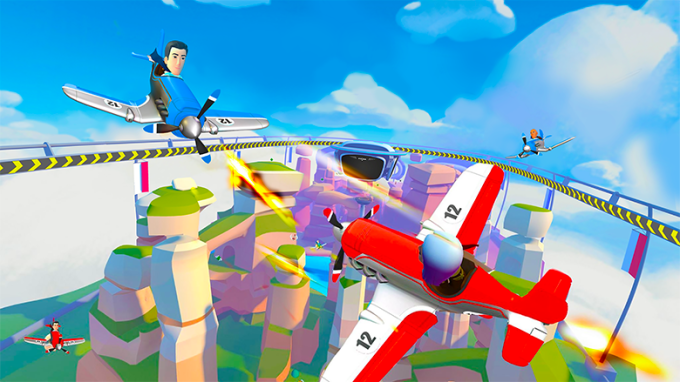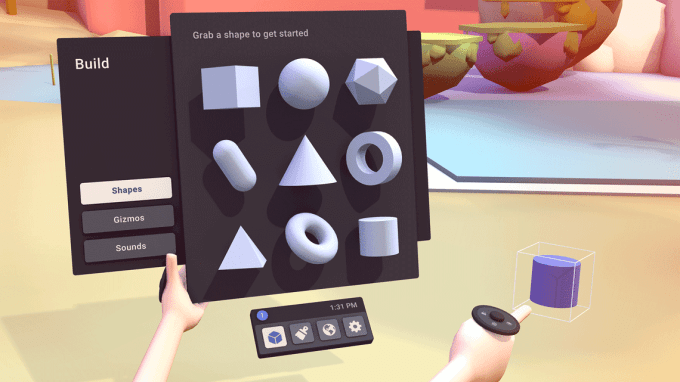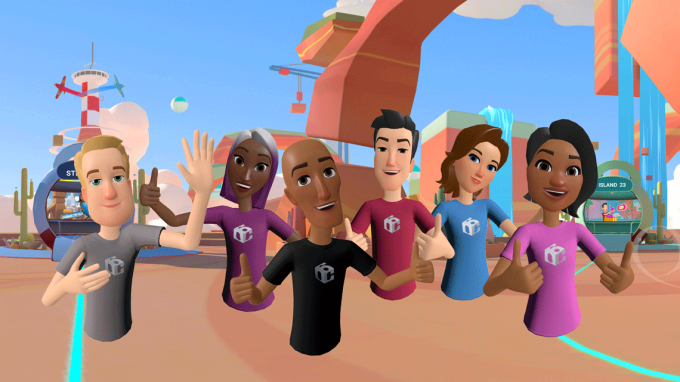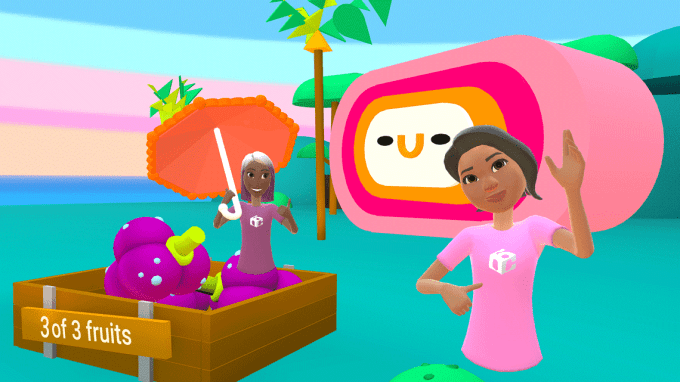Facebook today announced it’s building its own Ready Player One Oasis. Facebook Horizon is a virtual reality sandbox universe where you can build your own environments and games, play and socialize with friends, or just explore the user generated landscapes. This is Facebook’s take on Second Life.
Launching in early 2020 in closed beta, Facebook Horizon will allow users to design their own diverse avatars and hop between virtual locales through portals called Telepods, watch movies and consume other media with friends, and play multiplayer games together like Wing Strikers. It will also include human guides, known as Horizon Locals, who can give users assistance and protect their safety in the VR world so trolls can’t run rampant.
Users interested in early access can apply for the beta here.

As part of the launch, Facebook will shut down its existing social VR experiences Facebook Spaces and Oculus Rooms on October 25th, leaving a bit of a gap until Horizon launches. Oculus Rooms debuted in 2016 as your decoratable private VR apartment, while Spaces first launched in 2017 to let users chat, watch movies, and take VR selfies with friends. But both felt more like lobby waiting rooms with a few social features that were merely meant as a preamble to full-fledged VR games. In contrast, Horizon is designed to be a destination not a novelty, where users could spend tons of time.
How Facebook Horizon Works
Facebook Horizon will start centralized around a town square. Before people step in, they can choose how they look and what they wear from an expansive and inclusive set of avatar tools. From inside VR, users will be able to use the Horizon World Builder to create gaming arenas, vacation chillspots, and activities to fill them without the need to know how to code.

Facebook Horizon lets you build objects from scratch
You could design a tropical island, then invite friends to hang out with you on your virtual private beach. A object creator akin to the Oculus Medium sculpting feature lets you make anything, even a custom t-shirt your avatar could wear. Visual scripting tools let more serious developers create interactive and reactive experiences.
Facebook details is Horizon safety features on its “Citizenship” page that explains that “As citizens of Facebook Horizon, it is all of our responsibility to create a culture that’s respectful and comfortable . . . A Horizon citizen is friendly, inclusive, and curious.” Horizon Locals will wander the VR landscapes to answer questions or aid users if they’re having technical or safety issues. They seem poised to be part customer support, part in-world police.

Facebook Horizon will include human Locals who provide safety and technical support
If things get overwhelming, you can tap a shield button to pause and dip into a private space parallel to Horizon. Users can define their personal space boundaries so no one can get in their face or appear to touch them. And traditional tools like muting, blocking, and reporting will all be available. It’s smart that Facebook outlined the community tone and defined these protections.
Facebook CEO Mark Zuckerberg announced Horizon today at the Oculus Connect 6 conference in San Jose. He discussed how “Horizon is going to have this property where it just expands and gets better” as Facebook and the community build more experiences for the VR sandbox.

Facebook lets you build your own islands and other locales in Horizon
Horizon makes perfect sense for a business obsessed with facilitating social interaction while monetized through ad views based on time-spent. It’s easy to imagine Horizon including virtual billboards for brands, Facebook-run shops for buying toys or home furnishings, third-party malls full of branded Nikes or Supreme shirts that score Zuckerberg a revenue cut, or subscriptions to access certain gaming worlds or premium planets to explore.
As Facebook starts to grow stale after 15 years on the market, users are looking for new ways to socialize. Many have already ditched the status updates and smarmy Life Events of Facebook for the pretty pictures of Instagram and silliness of Snapchat. Facebook risked being cast aside if it didn’t build its own VR successor. And by offering a world where users can escape their real lives instead of having to enviously compare them to their friends, Horizon could appeal to those bored or claustrophobic on Facebook.
from Social – TechCrunch https://ift.tt/2l6U50G Read More Detail!
0 comments:
Post a Comment